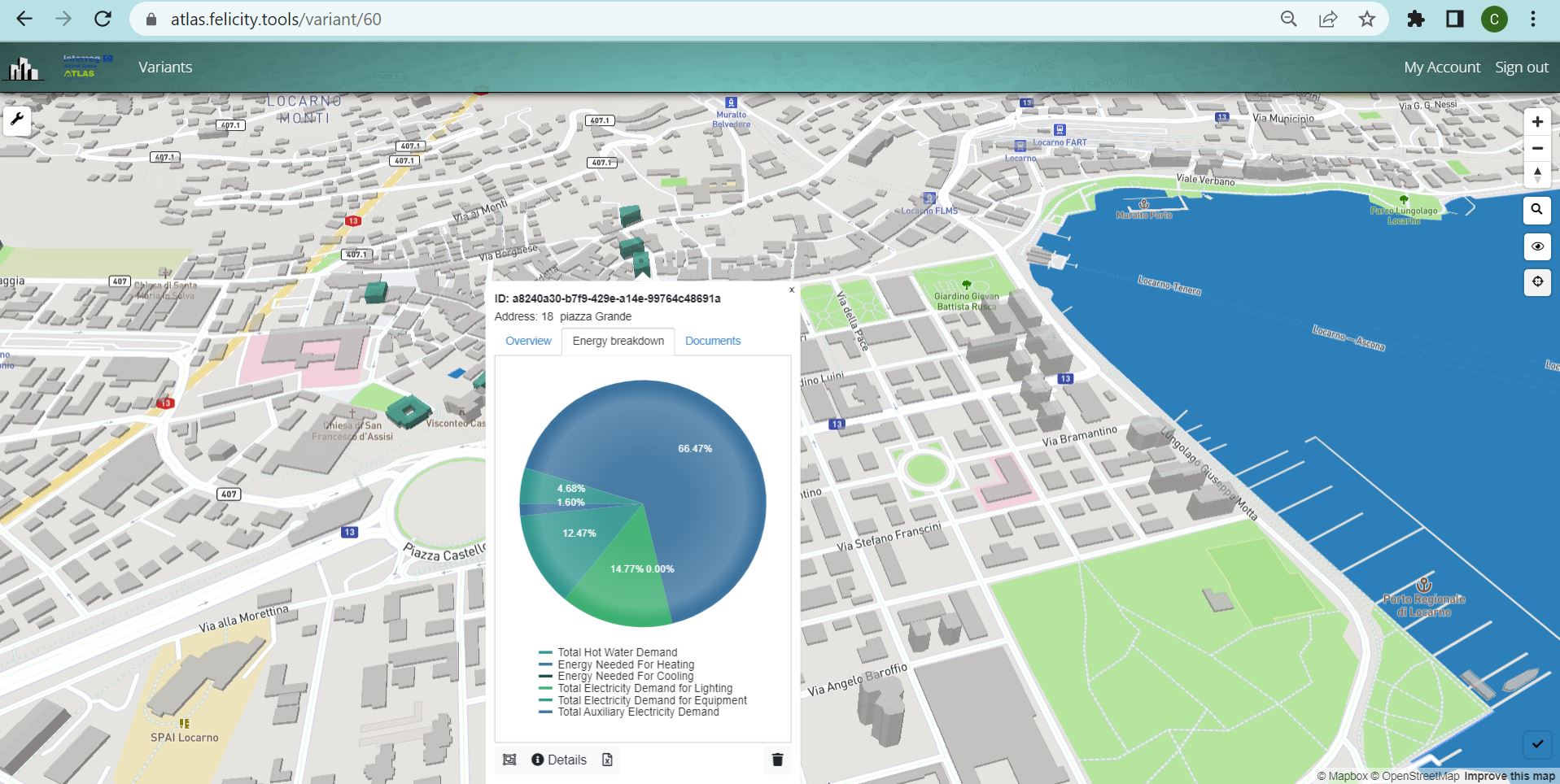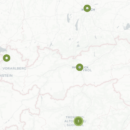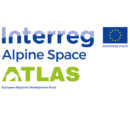September 18th 2023

The tool provides a simplified digital twin version of the built environment and allows the user to conduct an energy performance analysis at various spatial scales (single, or portfolio of buildings). Source: SUPSI.
Author: Dr Arch. Cristina S. Polo López, researcher – Innovative Building Envelope Team, Swiss BiPV Competence Center
A new decision-making tool to support municipalities in the energy retrofitting of existing and heritage buildings
Retrofitting the heritage buildings (listed or not) is a complex task due to legal, financial, and technical barriers. The decision makers often lack a holistic view about the condition of the existing building stock in their jurisdiction, possible renovation options and the impact of the renovation actions on the overall sustainability performance of the building stock. Within the ATLAS research project, the ATLAS-FeliCity online tool was developed. The tool provides a simplified digital twin version of the built environment and allows the user to conduct an energy performance analysis at various spatial scales (single, or portfolio of buildings). The tool will support Municipalities in developing optimized renovation strategies in terms of reducing the ecological footprint and carbon emissions as well as increasing their building´s stock energy efficiency and to be used as basis for the decision-making at municipality level. The developed tool was tested in different demo sites in the Alpine Space area characterized by similar building types and specially focused on the historic building stock. During the development, the tool was tested at different municipalities in Italy, Switzerland, Slovenia and Germany. In Switzerland, SUPSI test the tool on Locarno City. The study aimed to allow the property owner, in this case Locarno municipality, planning the interventions at the scale of the real estate portfolio by identifying priorities and sustainability.
The traditional architecture in the Alps is a key enabler for sustainable development in the social, ecological and economic spheres. In this context, improving the sustainability of the historic buildings can lead to several positive effects on the sustainability of the whole Alpine area, promoting local economy thus, limiting the land use changes and the rural depopulation. Moreover, the energy renovating of the traditional historic architecture extend their service life and reduce the ecological footprint and have an overarching socioeconomic impact that goes beyond the environmental or economic benefits. Within the ATLAS research project (https://www.alpine-space.org/projects/atlas/en/home), a digital twin decision support online tool named ATLAS-FeliCity was developed. The tool is designed to support a holistic energy retrofit of the heritage building stock and supports planners in the complex task of improving the sustainability of the built environment through providing a simplified digital twin of buildings, neighborhoods or cities, which is connected to several analysis and optimization functions (e.g. energy, carbon emissions, renewables, etc.).
When dealing with retrofitting projects, understanding the current energy performance of the building and its potential for energy demand reduction is an important step in the early decision-making process of the project to set the targets to be achieved. To support the design team in assessing the impact of different renovation scenarios on the heritage buildings, ATLAS-FeliCity provides an advanced Simulation and Design Hub (SDH) which is a convergence of Dynamic Simulation Modelling, Geographic Information Systems (GIS), cloud data storage & analysis supported by key performance indicators (KPIs) and valuable analysis tools. The SDH allows performing various analyses like energy demand, carbon emissions, share of renewables, and payback period of the selected interventions. Afterwards, the planning team can start applying various renovation interventions using the ATLAS-FeliCity intervention catalogue. The ATLAS-FeliCity renovation catalogue provides over 300 different kind of retrofitting measures which can be simulated on different scales of application. In the later decision-making step, the developed design variants within a concept are compared against each other thanks to a Multiple Criteria Decision Analysis (MCDA) value assessment. The objective therefore is to create and optimise the selected intervention measures in terms of energy, heritage compatibility, cost efficiency as well as the overall sustainability. This serves as a basis for selecting and prioritising the most efficient retrofitting solutions. The ATLAS-FeliCity tool has been proved to be very interesting and functional, as well as, easy to handle, in determining the possible renovation scenarios to be applied to the real estate parks studied. The developed tool is a key enabler of the novel ATLAS integrated decision support methodology (DS-Toolkit) which guides the stakeholder throughout the renovation work of historical buildings in five sequential phases, starting at the initiation phase up to the in-use phase.
Reference:
Polo López Cristina S, Curto Ivan, Khoja Ahmed, Exner Dagmar E, Haas Franziska and Troi Alessandra, 2022, ATLAS-FeliCity: Supporting Energy Retrofit Of the Heritage Building Stock Through A Simplified Digital Twin, Proceedings of EUROSUN 2022, 26-29 September 2022, Kassel, Germany. 2022 International Solar Energy Society (ISES) Conference Proceedings DOI 10.18086/eurosun.2022.02.07.


